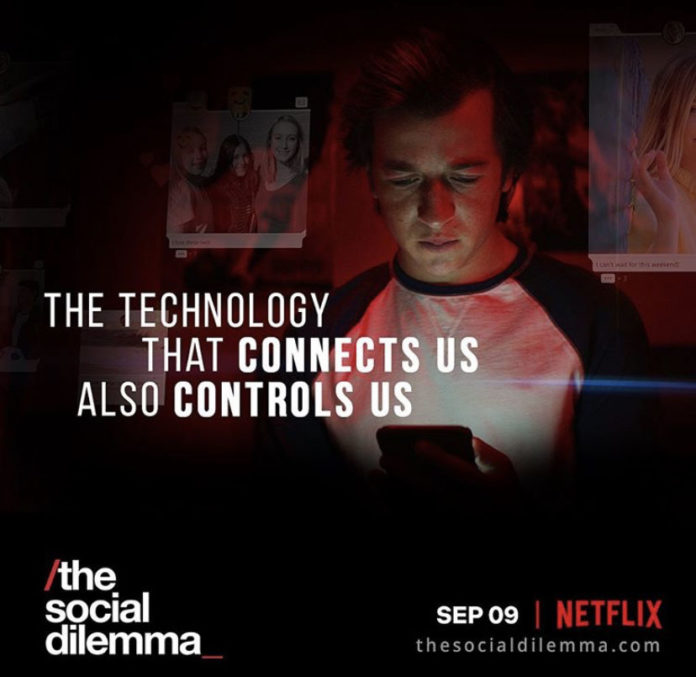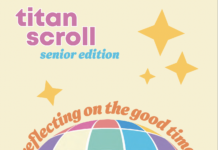Netflix’s “The Social Dilemma” is a mix between a documentary and a drama that goes in depth about the dangers of social media — as told by numerous former employees of different social media companies.
The film begins with introductions of the former employees of various social media companies, but they’re not just 9-5 office workers. These were the engineers, the co-inventors of the “like” button, Google Drive, Gmail chat, the presidents of the company, the directors of monetization.
Before diving deeper, the film moves into a news montage of major events in the past decade, relating to social media. Some of the more notable ones being: links between social media and the rise of anxiety and depression, addiction, fake news, TikTok, “Snapchat dysmorphia”, COVID — ,the racism that followed, and politics.
Between the interviews and the scary bits of information sprinkled throughout the documentary, the film follows a typical suburban family: mom, dad, older sister that goes against the societal norm, athletic teen boy, and the “baby” of the family that gets a phone way before their older siblings did.
When we’re first being introduced to the family, Cassandra, the older sister, comments that Isla, the younger sister, was so attached to her phone and her mom jumps in saying, “what was I supposed to do? I mean, every other kid in her class had one”. This question is what I think every parent asks themselves at some point, I mean I know my parents did.
What I find really cool about this documentary is the way they connect some of the bigger, more impactful things said by some of the platform developers is shown visually through Ben’s story. For example, Sandy Parakilas, a former operations manager at FaceBook and former product manager at Uber, said that “we’ve almost lost control over these systems. Because they’re controlling, you know, the information that we see, they’re controlling us more than we’re controlling them”. In the film this is represented with the three guys who control what pops up on Ben’s phone.
Another example would be when Bailey Richardson, who was on the early development team for Instagram said, “the algorithm has a mind of its own, so even though a person writes it, it’s written in a way that you kind of build the machine, and then the machine changes itself”. As the movie progresses, Ben’s mii character thing that floats in front of the three guys literally becomes more lifelike — or should I say more “Ben-like”.
I would be lying if I said this was eye-opening. We’ve known about the dangers on the internet, and it’s been drilled into our heads since the beginning that we need to be careful of what we share. We know this, but I would still highly recommend this movie to anyone and everyone.
It sounds so different hearing people that actually built these platforms tell you about the dangers they created, and profited, off of.















